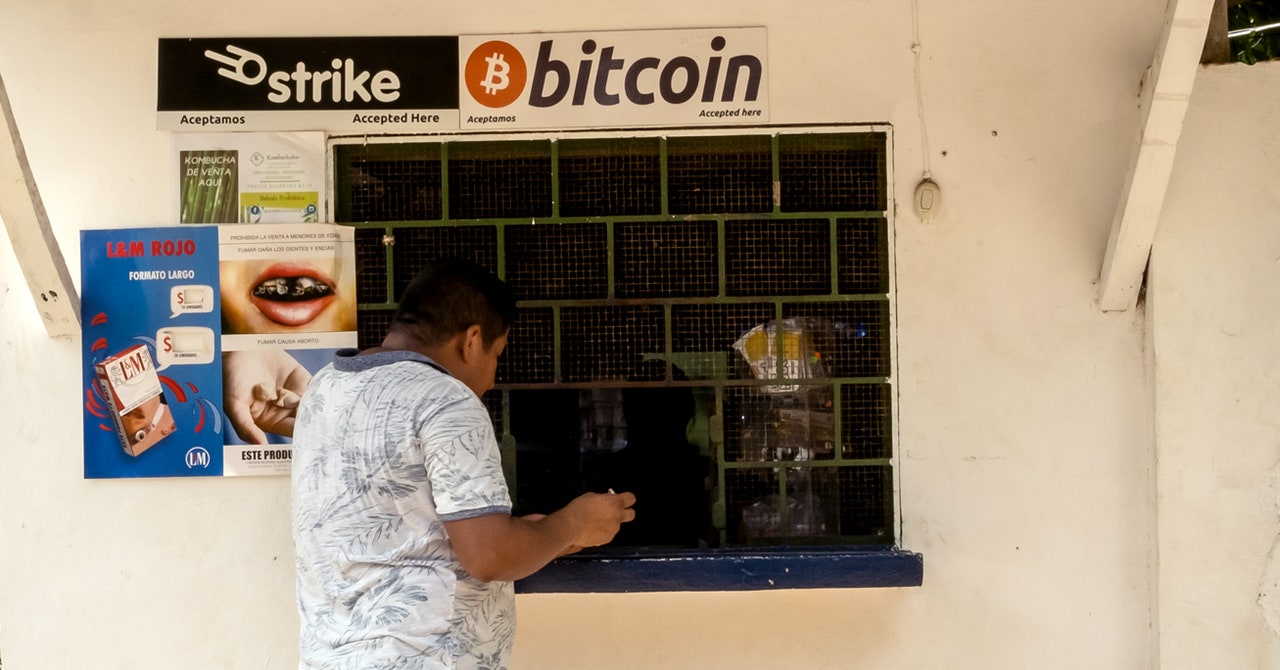El Salvador’s Race to Be the Bitcoin Capital of the World

Pierce says he is impressed by the government’s drive. “This government is incredibly entrepreneurial,” he says. “They are like just getting things done at lightning speed.” He says that he is working to organize a “big conference” in the country.
Lauren Bissell, a former Cambridge Analytica employee who later converted to blockchain and Bitcoin entrepreneurship, and was part of Pierce’s delegation, says she was “beyond impressed” by the government figures she met during the trip.
Yet Bissel admits that the road map to Bitcoin adoption looks very ambitious. “There’s going to be a lot of hours of no sleep. There’s a lot of work to do,” she says. “But I think that the launch will go successfully.”
With the countdown to Bitcoin Day down to just 69 days, the nuts and bolts needed to make the cryptocurrency work as legal tender are still a mirage. Athena, a company that had been initially tipped to install 1,000 ATM machines in the country (and challenged by Bukele on Twitter to deploy 1,500) will start with just 14. Going from volcano emoji to reality will also take time. “What you have in El Salvador is, seemingly, an abundance of geothermal energy and, at least for the time being, a friendly jurisdiction,” says Alex Brammer, vice president of business development at Luxor, a cryptocurrency mining company. “Providing the infrastructure there is going to take years.” Even the Bitcoin law looks like unfinished business: Its redrafting of an entirely new monetary system is hastily sketched in two pages and 16 articles, which is why a more detailed regulation is expected to be issued soon.
What is really Bukele’s game? One oft-repeated case for his move is that Bitcoin would be “banking the unbanked.” That fusty mantra is usually balderdash, but it might have some merit here, as 70 percent of El Salvador’s population does not have a bank account or access to easy payment solutions. By this line of thinking, a government-backed Bitcoin wallet, as a smartphone app, could arguably reach more people than existing banking service providers do, and might offer a convenient, low-commission medium for the Salvadoran diaspora to send back remittances. A small-scale Bitcoin project in El Zonte—a seaside town in northern El Salvador—was moderately successful in making the local economy function more efficiently and is credited for inspiring Bukele. In this reading, Bukele is the edgy maverick wielding liberating technology to lift his people from the state of deprivation to which financial institutions have consigned it.
There are problems, however, with that narrative. Some have pointed out that only 45 percent of the country’s population has internet access—and that an internet connection will be required to use the app. Ricardo Barrientos, chief economist at ICEFI, a Guatemala-based research institute focused on fiscal studies, predicts that Bitcoin will be treated as a “weak currency,” with employers keeping their savings in dollars and using the more volatile Bitcoin to pay salaries to their workers. “This class divide could trigger social tensions—that’s a recipe for disaster,” Barrientos says. The report Barrientos cowrote for ICEFI on this subject subtly suggests that by making Bitcoin legal tender without installing any anti-money-laundering checks, the government plans to encourage a “certain kind of acquisitions or investments” by creating a parallel market where “opaque operations” can take place.
Barrientos expects Bukele to backtrack before September 7 under pressure from international financial institutions and of some of his own advisers. Were that not to happen, Barrientos hopes that Bitcoin won’t catch on among the population. “The best-case scenario for it is that no one uses it and everyone keeps using dollars, apart from some narcos,” Barrientos says. “Hopefully there will be a natural debitcoinization.”
